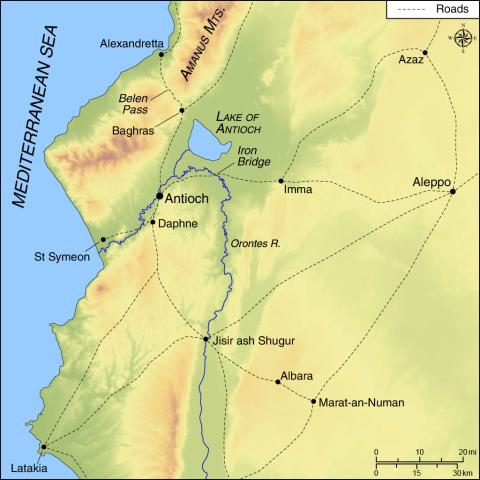Kerbogah Tries to Retake Antioch
[9.21.3] Cui ait ille: “Sī vīs, ut ex tōtō corde in tuō sim prōficuō, tibique fidēliter in hōc succurram perīculō, illud oppidum in meam trāde manum; et tunc vidēbis quāliter in tuō erō prōficuō, idque faciam cūstōdīre meōs hominēs.” Ait illī Sensadolus: “Sī potes omnēs Francōs occīdere mihique capita eōrum trādere, tibi dabō oppidum tibique faciam hominium, et in tuā fidēlitāte cūstōdiam illud oppidum.” Cui Curbaram: “Nōn ita” inquit “erit; sed continuō in meam manum committe castrum.” Tandem volēns sīve nōlēns commīsit illī castrum.
notes
(June 1098) Kerbogah (Curbaram) and Shems-ed-Daula (Sensadolus) argue over who will rule Antioch if Kerbogah defeats the crusaders.
in tuō ... prōficuō: literally “in your support," i.e., "as a useful ally."
tibique fidēliter in hōc succurram perīculō: “and if (you want) for me to faithfully come to assist you in this danger.” I take succurram as present subjective; Hill ignores the –que and translates as a future: “If you want my sincere help, I will faithfully give you assistance in this peril.”
oppidum: the citadel, still held by the Turks; also called castrum.
idque: id = oppidum.
castrum: i.e., the citadel.
vocabulary
proficuum –ī, n: support, assistance
oppidum –ī, n: town (CL); citadel (ML)
custōdiō custōdīre costōdīvī (custōdiī) custōdītum: to guard (OLD)
hominium –ī, n: homage (ML)
continuō: at once

